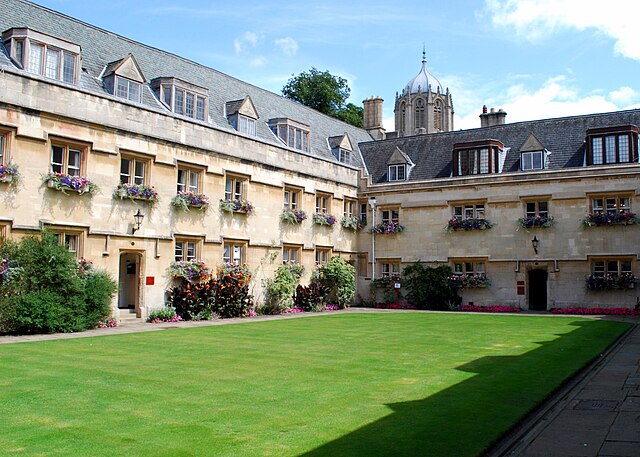Sir William Blackstone was an English jurist, justice and Tory politician most noted for his Commentaries on the Laws of England, which became the best-known description of the doctrines of the English common law. Born into a middle-class family in London, Blackstone was educated at Charterhouse School before matriculating at Pembroke College, Oxford, in 1738. After switching to and completing a Bachelor of Civil Law degree, he was made a fellow of All Souls College, Oxford, on 2 November 1743, admitted to Middle Temple, and called to the Bar there in 1746. Following a slow start to his career as a barrister, Blackstone became heavily involved in university administration, becoming accountant, treasurer and bursar on 28 November 1746 and Senior Bursar in 1750. Blackstone is considered responsible for completing the Codrington Library and Warton Building, and simplifying the complex accounting system used by the college. On 3 July 1753 he formally gave up his practice as a barrister and instead embarked on a series of lectures on English law, the first of their kind. These were massively successful, earning him a total of £453, and led to the publication of An Analysis of the Laws of England in 1756, which repeatedly sold out and was used to preface his later works.

William Blackstone
The Old Quad of Pembroke College, Oxford, where Blackstone studied
An Analysis of the Laws of England, Blackstone's first legal treatise, published during this period
King George III, a patron of Blackstone
Commentaries on the Laws of England
The Commentaries on the Laws of England are an influential 18th-century treatise on the common law of England by Sir William Blackstone, originally published by the Clarendon Press at Oxford between 1765 and 1769. The work is divided into four volumes, on the rights of persons, the rights of things, of private wrongs and of public wrongs.
The title page of the first book of William Blackstone's Commentaries on the Laws of England (1st ed., 1765)





